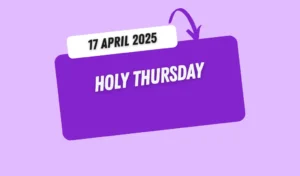HolyWeek
27th March 2024 (Wednesday)
Psalter: Week 2
Reading of the Day
First Reading: Isaiah 50:4-9a
The Lord God has given me the tongue of those who are taught, that I may know how to sustain with a word him who is weary. Morning by morning he awakens; he awakens my ear to hear as those who are taught. The Lord God has opened my ear, and I was not rebellious; I turned not backwards. I gave my back to those who strike, and my cheeks to those who pull out the beard; I hid not my face from disgrace and spitting. But the Lord God helps me; therefore I have not been disgraced; therefore I have set my face like a flint, and I know that I shall not be put to shame. He who vindicates me is near. Who will contend with me? Let us stand up together. Who is my adversary? Let him come near to me. Behold, the Lord God helps me; who will declare me guilty?
Psalm 69:8-10, 21-22, 31 and 33-34 (R. 14c, b)
R/. In your great mercy, answer me, O Lord, for a time of your favour.
Verse Before The Gospel
V/. Glory and praise to you, O Christ
R/. Glory and praise to you, O Christ
V/. Hail to you, our King; you alone are compassionate with our faults.
R/. Glory and praise to you, O Christ.
Gospel : Matthew 26:14-25
At that time: One of the twelve, whose name was Judas Iscariot, went to the chief priests and said, “What will you give me if I deliver him over to you?” And they paid him thirty pieces of silver. And from that moment he sought an opportunity to betray him. Now on the first day of Unleavened Bread the disciples came to Jesus, saying, “Where would you have us prepare for you to eat the Passover?” He said, “Go into the city to a certain man and say to him, ‘The Teacher says, My time is at hand. I will keep the Passover at your house with my disciples.’” And the disciples did as Jesus had directed them, and they prepared the Passover. When it was evening, he reclined at table with the twelve. And as they were eating, he said, “Truly, I say to you, one of you will betray me.” And they were very sorrowful and began to say to him one after another, “Is it I, Lord?” He answered, “He who has dipped his hand in the dish with me will betray me. The Son of Man goes as it is written of him, but woe to that man by whom the Son of Man is betrayed! It would have been better for that man if he had not been born.” Judas, who would betray him, answered, “Is it I, Rabbi?” He said to him, “You have said so.”
Daily Gospel Reflection
Highlight: All evil together!
Guidelines: Evil forces will rise up against us more powerfully when we stand for God and His mission. Often all the evil forces will join together as a united force to combat the godly force
1. The scene is preparing rapidly for terminating Jesus. Judas Iscariot joins hands with the chief priests. He enters into a deal with them. Thirty pieces of silver for delivering Jesus over to them. How ironic it is that he is offering to kill the author of life! How ungrateful it is to do evil to the one who did only good to him! How cruel it is that a disciple who must constantly seek every opportunity to defend his master, is now seeking an opportunity to kill him!
2. But from his part, Jesus’ approach and dealing with him does not change. He knew the betrayer. He knew his evil intention and plans. Yet, he does not react or retort. He does not expose him. He does not betray him in the public. The disciple might fail but the master never fails.
3. The figure of the suffering servant of Yahweh in the first reading perfectly fits Jesus. He is not rebellious. He did not turn backward. He does not hide his face from disgrace. He is prepared to accept and bear everything. But it is not out of helplessness. He is not frustrated or depressed. He is composed.
4. This composure and mental strength were possible only because of his total surrender and abandonment to God. He embodies the same depth of trust and entrustment of the suffering servant. “But the Lord God helps me. He who vindicates me is near.
5. I will not be put to shame. Who will contend with me? Who is my adversary? Who will declare me guilty? Behold, all of them will wear out like a garment”.
Practice: When we meet with problems and suffering, what is our attitude and response? What is our approach and behavior toward those who do harm to us? When tested, do we continue to trust and entrust ourselves to God?







